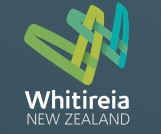About New Zealand Diploma In Information Systems (level 5) in Whitireia Community Polytechnic
Develop your skills in creating programs, web pages, networks and databases. Learn the fundamentals of software design and development. Build knowledge of the IT industry. Around 60 percent of the programme is practical – you’ll learn by working on real problems.
Programme outline
The New Zealand Diploma in Information Systems (Level 5) requires the successful completion of 120 credits (8 papers). It draws from a range of compulsory and optional computing, business and interpersonal courses within the Bachelor of Information Technology programme. Approximately 60 per cent of the courses are practical with an emphasis on successfully applying knowledge and skills to solve real problems.
|
IT5x81
|
Communication Studies (Compulsory)
To introduce students to major developments in Information Technology in New Zealand. To introduce students to the theories, principles and practical skills associated with effective communication in relation to Information Technology contexts.
International Students require IELTS 6.0
|
|
IT5x82
|
Fundamentals of Data Models and Databases (Compulsory)
To introduce students to the concepts of data models and databases
|
|
IT5x83
|
Fundamentals of Software Design and Development (Compulsory)
To provide students with an understanding of computer software through the study of logic methods, software development and documentation methods, and give experience in using simple programming language elements. To understand concepts of systems theory, the stages of the systems development life cycle, and concepts in systems analysis and design.
|
|
IT5x84
|
Programming
To introduce students to fundamental programming skills. To provide an opportunity to develop and maintain applications in a commonly used programming language.
|
|
IT5x85
|
Mathematics for Information Technology (Compulsory)
To introduce students to the concepts of discrete mathematics that are fundamental to Information Technology.
|
|
IT5x86
|
The Information Technology Environment (Compulsory)
To introduce students to fundamental business concepts and principles, and how these relate to the Information Technology industry. To provide students with grounding in legal, ethical and professional issues related to the Information Technology industry and to enable them to make decisions according to accepted standards.
|
|
IT5x87
|
Fundamentals of Networking
To introduce students to the fundamental concepts and principles of computer networking systems administration. To provide an understanding of networking and data communications principles, and enable students to experience installation and troubleshooting of networks.
|
|
IT5x89
|
Introduction to Operating Systems
To introduce the underlying principles, evolution and the implementation of operating systems. To provide an opportunity to gain experience in using operating system instructions.
|
Academic qualification equivalents
- Completion of All India Senior School Certificate (CBSE) or Indian School Certificate (CISCE).
English language requirements (one of the below):
IELTS:Minimum IELTS 6.0 (no lower than 5.5 in any band), or equivalent
Please note, some Whitireia degree level programmes require a higher level of English language competence.
TOEFL iBT : 60 - 90
PTE: 40 - 65
Whitireia Community Polytechnic Highlights
| Location |
3 Wi Neera Dr, Elsdon, Porirua 5022, New Zealand , Wellington |
| Country |
New Zealand |
| Type |
Public |
| Established |
1986 |
| No.of students |
6,194 |
Whitireia New Zealand Tuition Fees
| Courses |
Duration |
Tuition Fees |
| Engineering (1 Courses) |
1 year |
NZD 23160 |
| Science (1 Courses) |
3 year |
NZD 22950 |
| Arts (1 Courses) |
1 year |
NZD 19950 |
| Information Technology (IT) (3 Courses) |
17 Week - 3 Year |
NZD 10625 - NZD 19250 |
| Management (4 Courses) |
18 Month - 2 Year |
NZD 18250 - NZD 21950 |
New Zealand Living Expenses
In addition to your tuition and insurance fees, you will need between $20,000 and $25,000 per year ($380–480 per week) for accommodation/rent, food expenses, transportation costs, phone bills, internet usage and entertainment. No matter what your tuition or course fee is, the average living expense will be same for everyone. Please note that these amounts are just recommendations, Immigration New Zealand requirement is $15,000 per year plus return airfare or additional $2,000.
| General expenses |
Cost
(in NZ dollars) |
| Rent (per month) |
$800–$950 |
| Groceries (per week) |
$100–$150 |
| Gym membership (per year) |
$300 |
| Entertainment (per week) |
$50 |
| Milk (per litre) |
$3 |
| Coca Cola (per can) |
$2 |
| Cup of Coffee |
$3–$5 |
| Lunch from University food hall or campus café |
$7–$12 |
| Local calls made from a cell-phone |
$0.50–$1.50 |
| Taxi - 5 km ride |
$10–$12 |
| Movie ticket |
$10–$14 |
| Visit to doctor |
$45–$85 |

